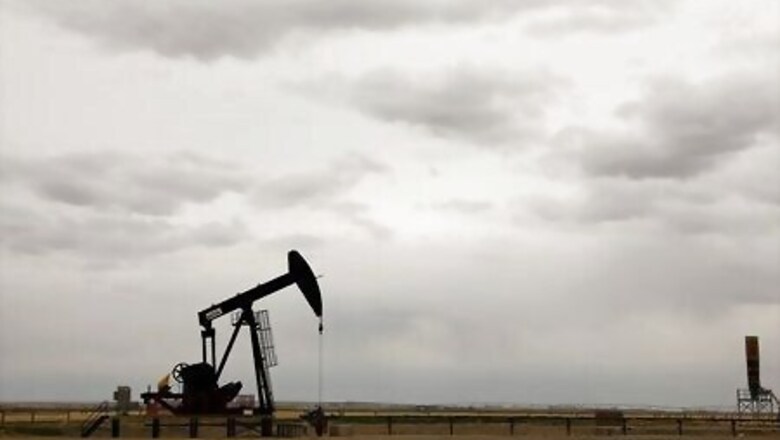
views
MELBOURNE Oil prices slipped on Friday, adding to losses in the previous session, on worries that fuel demand growth will drop amid a resurgence of coronavirus cases and as talks have stalled in the United States on a new stimulus deal.
U.S. West Texas Intermediate (WTI) crude futures slipped 2 cents to $41.93 a barrel at 0246 GMT, while Brent crude fell 6 cents, or 0.1%, to $45.03, after both contracts had earlier traded higher.
However, WTI and Brent are both set for weekly gains of at least 4%, the most for the two benchmark contracts since the week ending July 3.
The resurgence of coronavirus infections remains the main uncertainty in the oil market, as that will determine how fast fuel demand rebounds. Tallies show infections in the United States are rising in a number of states, including Colorado, Ohio and Virginia.
Rising cases remain the key uncertainty for fuel demand growth and in turn oil prices, analysts said.
“It really comes down to the demand situation,” said AxiCorp market strategist Stephen Innes.
“We’re caught in limbo trying to collect our thoughts on how the (coronavirus) curve is going to work. Is the flattening in the U.S. going to outweigh flare-ups globally?” he said.
Analysts were also watching the lack of progress in the talks between the White House and Democrats over the next coronavirus stimulus package, with Democrats saying President Donald Trump may have to issue executive orders if he does not want to negotiate further.
“The virus relief package remains the last hope to boost (fuel) demand, with the U.S. driving season coming to an end soon,” ANZ Research said in a note.
Over the week, a weaker U.S. dollar has helped support higher oil prices, as oil is priced in U.S. dollars, making it more attractive to crude buyers in other currencies.
The dollar index, which measures the greenback against six major currencies, dropped to its lowest since May 2018 on Thursday.
While the index is up slightly today, the dollar is expected to weaken ahead of U.S. non-farm payrolls data that are widely expected to show jobs creation slowed in July from the previous month amid a surge in COVID-19 infections.
Disclaimer: This post has been auto-published from an agency feed without any modifications to the text and has not been reviewed by an editor

















Comments
0 comment